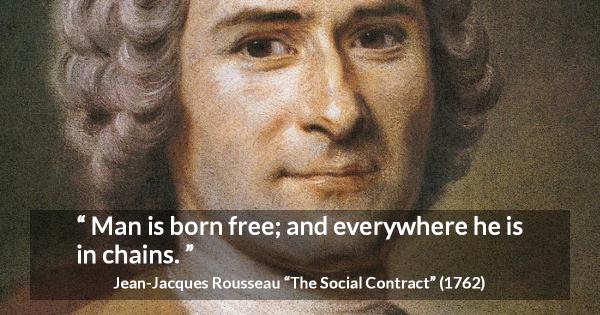
‘Man is born free but everywhere is in chains’ goes the famous dictum of Jean Jack Rousseau. Rousseau appears to be assuming a state of nature which accepts innate freedom. Is that really so? Axel Honneth seems to indicate that our freedom is an achievement and not something that is thrust onto our throats by destiny.
The moral life is thought to be freely generated. Freedom, therefore, is thought to be a primary requisite for moral life. This view is that without freedom we cannot be moral. In contrast to this, we have Axel Honneth who seems to stand for constructivist thinking of human freedom. The acceptance of innate freedom lies in the philosophical right. The constructivist understanding of freedom is on the philosophical left.
The principle that states that knowledge is freedom seem to be a constructivist position which then sees like Hegel’s active submission to the ethical norm or moral law sets us free. This means we become free by exercising our moral obligation. This view is still Socratic which regards knowledge as a virtue. It means once one lives this virtue one becomes free. This means living by the moral norms, one opens himself or herself to recognition which is a fruit of the evaluation of our moral life by the other.
This means that there is collective intentionality through which norms arise and the authority that agents give to the reciprocal evaluations which then lead to mutual recognition. Thus, in the context of the norm of love, participants in the practice recognize each other as having needs or desires. This suggests that to recognize someone as a lover means one is acting in accordance with the collectively accepted structure of norms concerning love.
Each context of moral practice has its own moral autonomy. The Master-slave dialectics, therefore, produces it’s own deliberative authority. This means these norms have to have purposive ends. This requires that they express values accepted and affirmed by collective intentionality by the members of a group. This form of communitarianism seems to be still on the philosophical right. This is Hegelian thinking that believes that morality is socially embedded. This is determinist and belongs to the right wing.
Honneth abandons the determinist approach of Hegel and replaces it with a possibility approach like Jurgen Habermas. He believed that the norms of ethical life are not rigid and are open to possible contestation. This can result in a revision of ethical practices. The ethical sphere is an unplanned dwelling process kept in motion by the struggle for recognition since the participants contend with specific ways of applying institutionalized norms according to their own respective situations and desire.
History of the ethical sphere, therefore, becomes a dialectical or conflictual circus whereby certain validity circus that is already inherent in every ethical norm is slowly stripped away. This way Honneth appears to indicate that the history of humanity is not one of the class struggles but that of struggles for recognition. These struggles for recognition lead to revision of ethical norms resulting in more universally applicable ethical norms.

